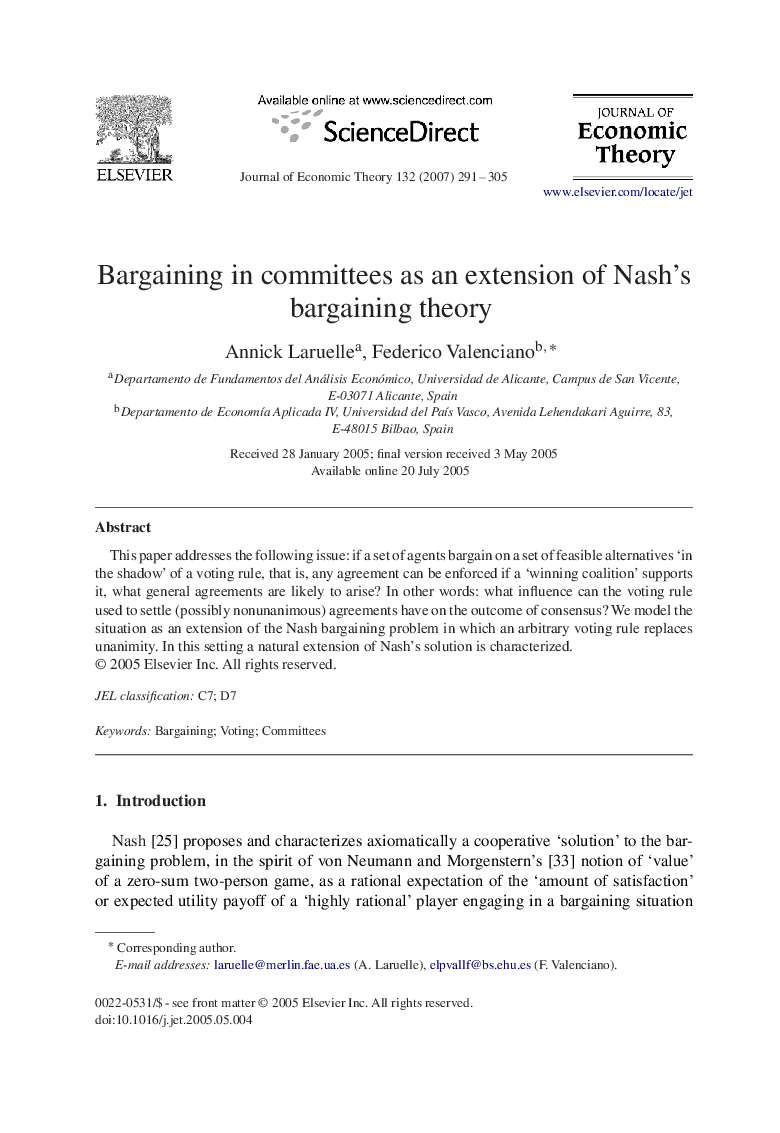| Article ID | Journal | Published Year | Pages | File Type |
|---|---|---|---|---|
| 957524 | Journal of Economic Theory | 2007 | 15 Pages |
Abstract
This paper addresses the following issue: if a set of agents bargain on a set of feasible alternatives ‘in the shadow’ of a voting rule, that is, any agreement can be enforced if a ‘winning coalition’ supports it, what general agreements are likely to arise? In other words: what influence can the voting rule used to settle (possibly nonunanimous) agreements have on the outcome of consensus? We model the situation as an extension of the Nash bargaining problem in which an arbitrary voting rule replaces unanimity. In this setting a natural extension of Nash's solution is characterized.
Keywords
Related Topics
Social Sciences and Humanities
Economics, Econometrics and Finance
Economics and Econometrics
Authors
Annick Laruelle, Federico Valenciano,
